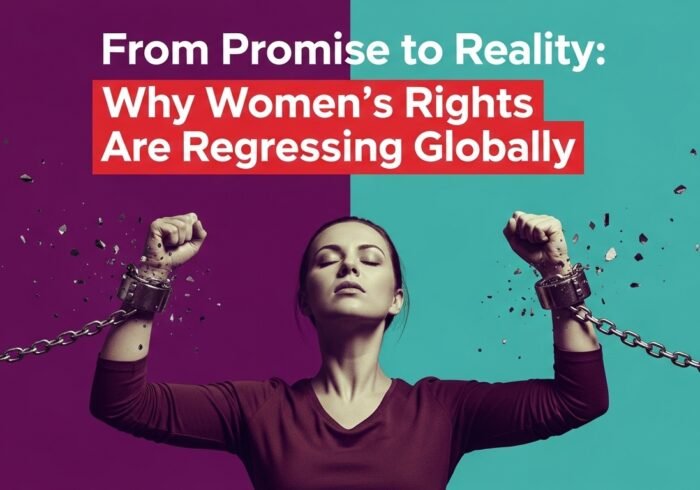 On September 21, 2025, tens of thousands of Brazilians took to the streets in major cities like São Paulo, Rio de Janeiro, Brasília, Salvador, and Belo Horizonte to protest legislative efforts that could grant amnesty to former President Jair Bolsonaro and his allies. These protests represent some of the largest pro-democracy demonstrations in Brazil in recent years, as citizens push back against what they see as an attempt to undermine judicial accountability and shield political elites from consequences. The Guardian+2Reuters+2
On September 21, 2025, tens of thousands of Brazilians took to the streets in major cities like São Paulo, Rio de Janeiro, Brasília, Salvador, and Belo Horizonte to protest legislative efforts that could grant amnesty to former President Jair Bolsonaro and his allies. These protests represent some of the largest pro-democracy demonstrations in Brazil in recent years, as citizens push back against what they see as an attempt to undermine judicial accountability and shield political elites from consequences. The Guardian+2Reuters+2
What Led to the Protests
-
In January 2023, supporters of Bolsonaro stormed the National Congress, Supreme Court, and presidential palace in Brasília, in what prosecutors say was part of a coordinated plan to overturn the outcome of the 2022 election. Bolsonaro was recently convicted by Brazil’s Supreme Court, receiving a sentence of 27 years and three months on charges including leading a criminal organization and attempting to abolish democratic rule via violence. AP News+1
-
Following the conviction, right-wing lawmakers in Congress introduced bills and constitutional amendments aimed at granting amnesty or shielding lawmakers from prosecution or arrest—often called the “Bandit’s Bill” by critics. These proposals fast-track debate, reduce oversight, or make legal consequences for political actors more difficult. Reuters+2Brasil de Fato+2
Public Response & Demonstrations
-
Protests spread across all 26 states and the federal district, with major turnouts in São Paulo (≈ 42,000) and Rio de Janeiro (≈ 41,800). The Washington Post+2Reuters+2
-
Cultural figures, musicians, trade unions, and civil society joined in: Caetano Veloso, Chico Buarque, Gilberto Gil, among others, performed in support of the demonstrations. The Guardian+1
-
Common slogans: “Sem anistia” (“No amnesty”), “Bolsonaro in jail”, and denouncements of “shields” being created in Congress to protect former officials from legal accountability. The Guardian+2Al Jazeera+2
Arguments from Both Sides
-
Supporters of the amnesty push argue that the trials — and legal prosecutions — are politically motivated, that parts of the legal process have been rushed, and that shielding from prosecution is necessary to prevent instability. Some claim that continued legal cases distract from broader social issues like inflation, inequality, and public services. The Washington Post+1
-
Opponents of amnesty assert that granting pardons would erode democracy and set a dangerous precedent where political elites can escape accountability. The movement against amnesty references Brazil’s past (especially the 1979 amnesty) as warning: impunity breeds repetition. They argue that justice must be upheld, and institutions like the judiciary and legislature must not become tools for personal political protectionism. Financial Times+3Agência Brasil+3Agência Brasil+3
Current Status and Stakes
-
Congress’s lower house has already fast-tracked bills/amendments that would increase immunity for lawmakers and make it harder to prosecute elected officials without internal legislative approval. The so-called “Shielding Bill” is under intense debate. Al Jazeera+1
-
Many legal analysts say that even if courts find Bolsonaro guilty, political maneuvers like these threaten the separation of powers and judicial autonomy. Also, public polling indicates that support for the amnesty is lower than opposition—meaning the majority of Brazilians prefer that convictions stand and not be overturned. AP News+2Al Jazeera+2
Implications Beyond Brazil
-
The protests show how democratic norms are under pressure globally when political elites try to use legislative power to evade justice. Brazil’s situation echoes debates elsewhere: about rule of law, free expression, impeachment, and institutional checks.
-
These tensions raise questions: What prevents political impunity? How strong must judicial and legal institutions be so that political actors are not above the law? And what role does public mobilization play in defending democratic principles?
-
Conclusion
Brazil’s amnesty controversy is not just about one man or one bill—it is about whether legal consequences apply equally, regardless of political allegiance. The momentum shown in Brazil’s protests suggests many citizens are unwilling to accept laws that dilute justice. Democracies survive when their legal institutions remain independent and citizens remain vigilant. Brazil is now testing whether its politicians will recognise that accountability cannot be optional.





